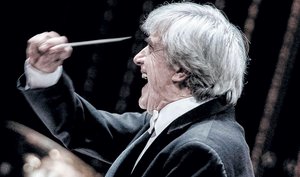ERKEL Hunyadi László - overture
CSABA SZABÓ Five Songs to Poems by Jenő Dsida – for solo soprano and orchestra
LISZT Orpheus – symphonic poem S. 98
--- interval ---
WEINER Carnival – humoresque for chamber orchestra, op. 5
RÁNKI The New Clothes of King Pomade – suite No. 1
Featuring: Andrea Brassói-Jőrös soprano
Conductor: Ádám Medveczky

This programme of Hungarian works spans the ages from 1845 to the second half of the 20th century. The opening piece is, in the words of Bence Szabolcsi, the first Hungarian symphonic poem. The Hunyadi László overture was written in the year following the opera’s world premiere, superbly condensing the motifs and drama of the opera. Csaba Szabó, an outstanding figure of Transylvanian Hungarian music life in the 20th century, composed his orchestral song cycle to the poems of Jenő Dsida, amongst them the famous and heart-wrenching Holy Thursday, in 1969. Vocal soloist is Andrea Brassói-Jőrös, the young soprano who won last year’s shared first prize at the Armel Song Competition. Liszt’s fourth symphonic poem, Orpheus, inspired by Etruscan vases in the Louvre, is followed by Leó Weiner’s Carnival: according to Géza Csáth, the humoresque caused the audience to laugh out loud at the world premiere in 1908. This is also true of The New Clothes of King Pomade by György Ránki, which right in the middle of a fake historical period – on the opera stage and in the concert hall – talked about the fact that the king has, in fact, no clothes. Ádám Medveczky, Kossuth and Prima Primissima Prize holder, conducts.
